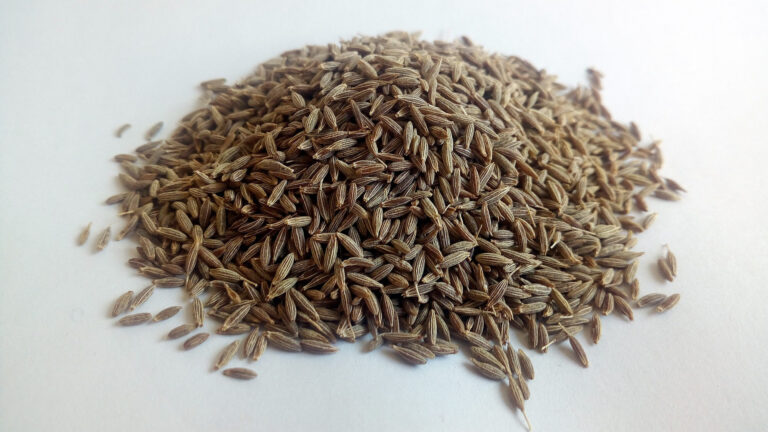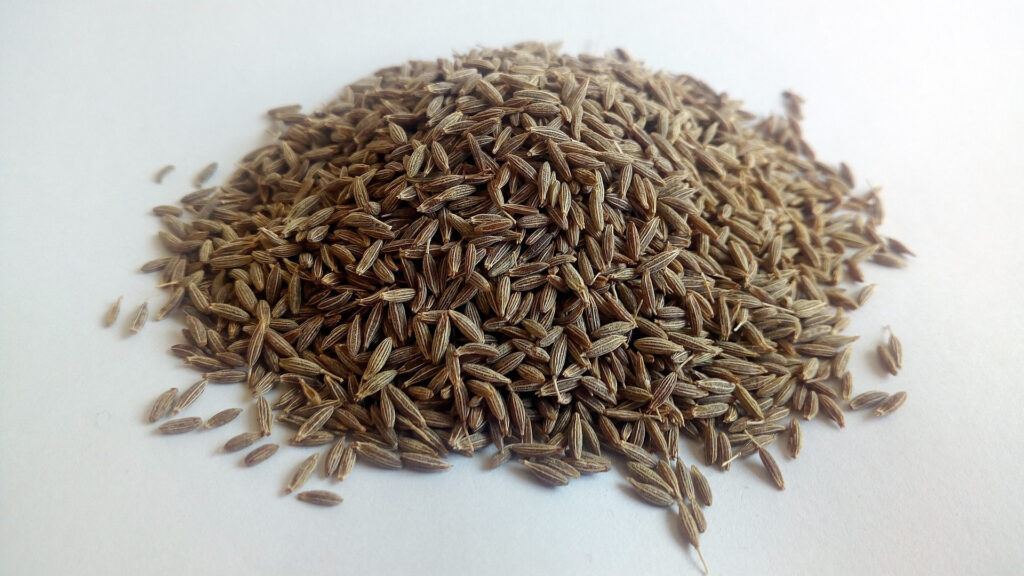Cumin to the Light
By
Sarah “Nikki” Wolin

Long used in traditional medicine to combat gastrointestinal problems, cumin is ready to step into the spotlight. Cumin is a spice made from the dried seed of the Cuminum cyminum plant, belonging to the same family as carrots and parsley. Native to the Mediterranean and South Asia, it is used as a seasoning in many Middle Eastern, Latin American, and Indian cuisines to lend dishes a rich, earthy flavor. Cumin can be found as whole dried seeds, ground powder, and essential oil.
Mummy Maker
Cumin has historically been used to treat everything from headaches to flatulence to jaundice. Interestingly, the Ancient Egyptians not only used cumin to treat indigestion and diarrhea, but also to clean and preserve the dead in the embalming process!
In addition to improving digestion, cumin contains anticarcinogenic, antidiabetic, and antibacterial properties along with a multitude of nutrients like iron, calcium, and magnesium.
Improves Digestion
Cumin extract and essential oil has been shown to increase the activity of the digestive enzymes amylase, protease, lipase, and phytase. Increasing enzyme activity speeds up the digestion process and increases the release of bile from the gut. Bile acids play a key role in digestion, breaking fats into fatty acids so that they can be absorbed by the body.
One study found that cumin extract reduced the symptoms of patients with irritable bowel syndrome (IBS), a common gastrointestinal disorder characterized by abdominal pain, bloating, and altered bowel habits. Thus, the use of cumin essential oil could serve as a low-cost and easily-available solution to IBS, which has no universal treatment despite its prevalence.
Anticarcinogenic
How does cumin combat cancer? The explanation requires a bit of chemistry. Electrons are most stable in pairs, and when they exist as lone electrons they become unstable free radicals. In order to form a full pair, the free radical pulls an electron off of another molecule in a process called oxidation. However, this imbalance, or oxidative stress, has been linked to cancer, heart disease, diabetes, Alzheimer’s disease, Parkinson’s disease, and eye diseases like cataracts and age-related macular degeneration.
Where does cumin come in? The answer is that cumin is rich in antioxidants. Antioxidants prevent other molecules from oxidizing by providing an electron to free radicals so they can have a full pair and no longer need to steal another electron. By containing antioxidant flavonoids, alkaloids, and phenols, cumin protects the body from cancer and reduces the risk of other diseases. One study found that cumin powder and extract delayed and inhibited the growth of breast cancer tumors in rats.
Antidiabetic
Cumin has the potential to prevent diabetes complications like hypertension. One study found that cumin powder lowered the level of urea in blood, improving insulin function and reducing the body weights of diabetic rats. Another study found that cumin reduced systolic and diastolic blood pressure in patients with type II diabetes.
Antimicrobial
Historically used as a preservative, cumin can also protect the gut! Cumin essential oil reduces the incidence of food-borne illness by limiting the growth of microbes commonly found in foods, such as E. coli, S. aureus, S. faecelis, and some fungi. Thus, cumin protects the gut from fungal and bacterial infections and reduces food poisoning.
Are You Cumin Around?
With all these health benefits, what’s not to like? Cumin is all around us as an ingredient in curry powders, spice mixes, and seasoning for chili, tacos, guacamole, and soup. With its digestive,
antioxidant, and antimicrobial properties, it deserves its time in the sun.
Cumin to the light by making cumin part of your diet!
